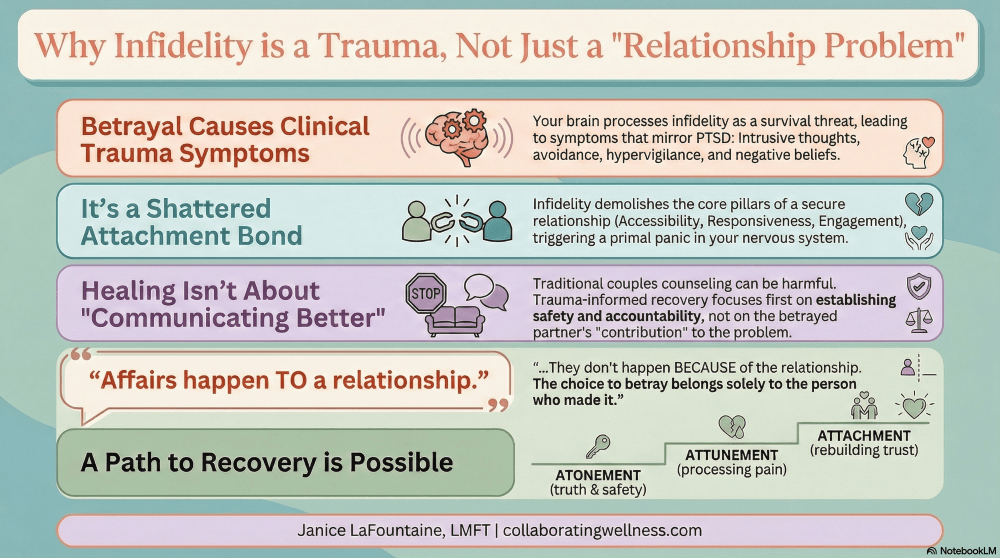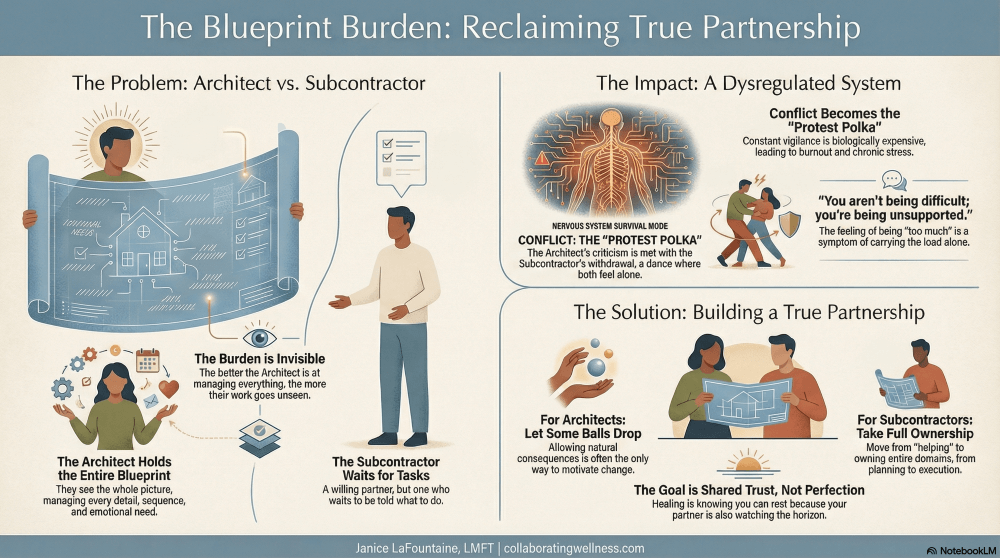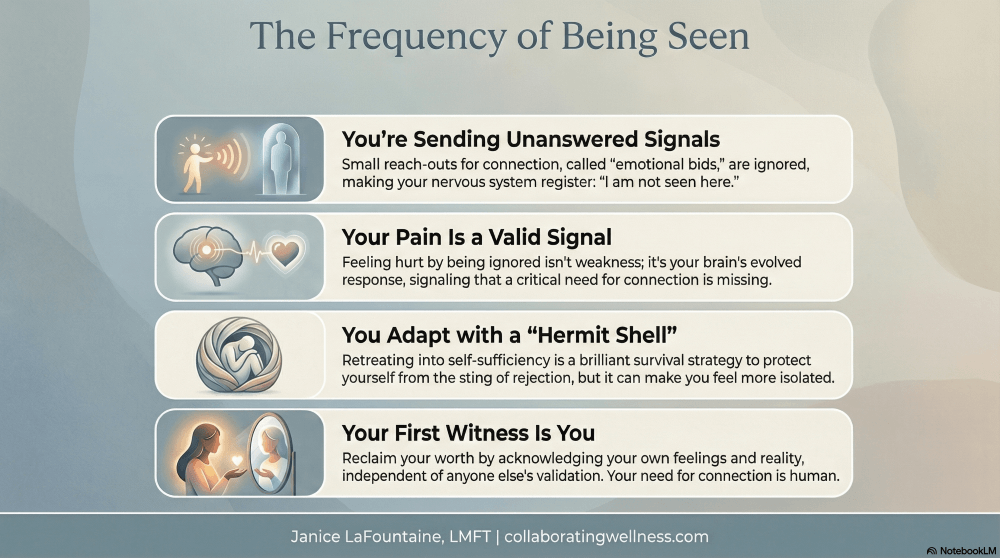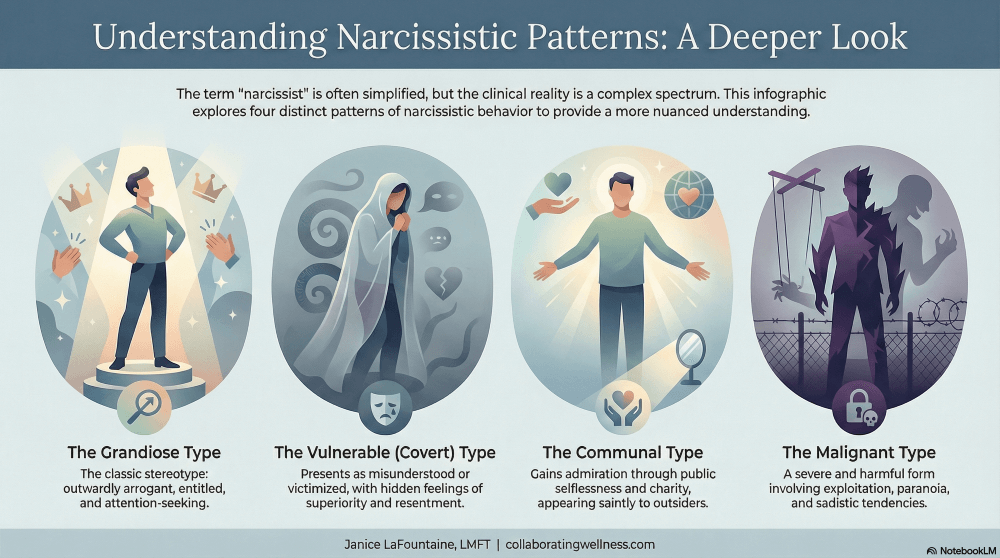When Your Partner Had an Affair: Why Betrayal is Trauma
When Your Partner Had an Affair: Why Betrayal is Trauma (Not Just a 'Relationship Problem')
You can't sleep. You replay every conversation, every timeline, searching for clues you missed. Your body floods with panic when your partner's phone buzzes. You feel like you're losing your mind—except you're not. Your nervous system is doing exactly what it's designed to do when your reality has been shattered.
If your partner had an affair, you're not experiencing a "rough patch" or "trust issues." You're experiencing betrayal trauma. And understanding this distinction changes everything about your path forward.
As a trauma specialist and Gottman-trained couples therapist in Spokane, I work with couples recovering from infidelity. What I see repeatedly: traditional couples therapy that treats affairs as "communication problems" or asks both partners to examine "what went wrong in the relationship" often makes things worse. Because betrayal isn't a relationship problem—it's a trauma response that requires trauma-informed treatment.




